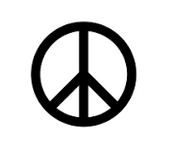Keep the faith Papergirl.
View attachment 47898
it's not about faith Steve.
It is faith to believe despite thousands of years of reordered human history humans will collectively be something other than what we are.
I was having a conversion with a Washington state cop once and he said over something 'You do not understand, individually people are are smart, collectively they are like sheep'.
Observation trumps philosophical and moral speculation. Observations led to social science and psychology.
For a thousand years the RCC enforced a rigid moral code for the masses ,the educated elitee did not follow but paid lip service.
The relegion of Jesus the prince of peace has led to wars and brutality.
Have you read Huxley's Brave New World? An attempt to genetically engineer universal happiness
Exclusive sexual relationships lead to conflict and unhappiness, so ban exclusive sexual and emotional relationships.
In one of Vonnegut's story a society where everybody is made equal. If you have natural physicall strength you have to wear weights like handicapping a horse in a race..
Point beng there will alwys be inequties, it is the way natuire is. There will always be condct and unhappiness.
A fundmental Buddist view, to live is to suffer. It is inevitable. The quetion is not elmination of sufferng but how to find peace in a relity that is not fundamntaly peacful.
We may be apochng a tipping point of war between Russia and NATO if Ukrine strkes Russia with long range missles supplied by NATO.
We may be nearing a tippng point in the Med East with a war between Isreal, Lebnion, and Iran which will drag us in.
Keep the faith.

